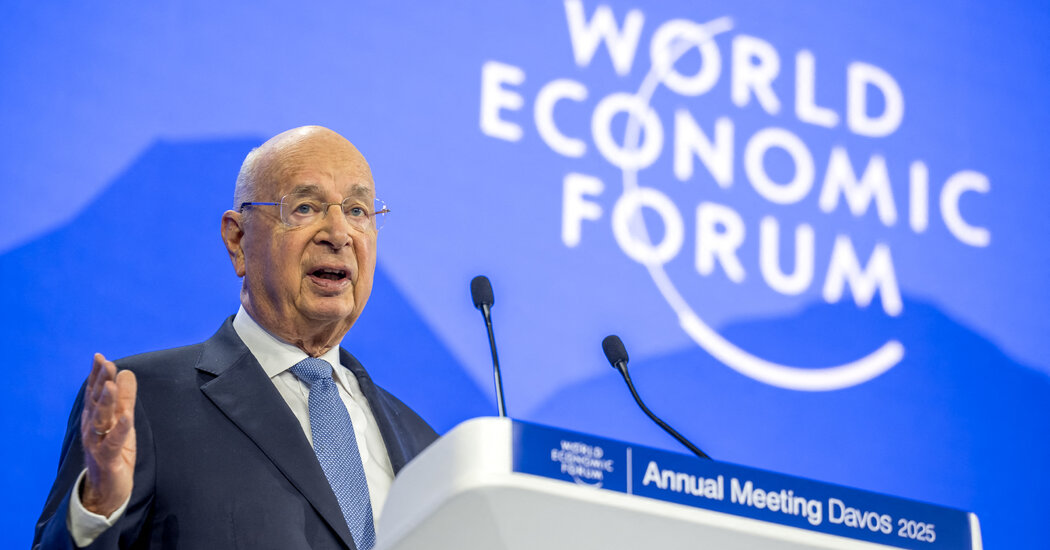The World Economic Forum, the organization behind the annual gathering of world leaders in Davos, Switzerland, is investigating allegations of improper behavior by its founder, Klaus Schwab.
The board of the World Economic Forum opened an inquiry into Mr. Schwab in April after receiving a letter, anonymously attributed to current and former staff members, claiming that he improperly used the organization’s funds and describing comments that the letter said had made women uncomfortable, two people with knowledge of the matter said. The people requested anonymity because details of the letter remain confidential.
Mr. Schwab, 87, stepped down as chair of the board last month. He did not have an immediate comment. He told The Wall Street Journal, which earlier reported the whistle-blower letter and investigation, that he denied all the allegations and that the board had overreacted in ordering the investigation.
“In response to a whistle-blower letter concerning former Chairman Klaus Schwab, the board of trustees has unanimously decided to initiate an independent internal investigation,” Yann Zopf, who heads media for the forum, said in a statement on Wednesday. “Following consultation with external legal counsel, the board concluded that a thorough and objective investigation was the appropriate course of action.”
Mr. Schwab, a German economist, founded the World Economic Forum in 1971 to promote the idea that companies can play an integral role in furthering social causes. It is best known for its January conference, where thousands of executives and policymakers descend on the Swiss Alps to make big promises on everything from diversity to climate change.
Known more commonly as Davos, for its location, the conference has become a target of criticism in recent years, focused on whether the headline-grabbing pronouncements and ambitious targets yield any meaningful change. Many of these pledges — like commitments to globalism, diversity and inclusion — were toned down this year in the wake of President Trump’s election.
Still, Davos maintains significance for executives who use it largely as a business conference to help set the agenda for the year. Its high-powered board reflects its influence, with members including chief executives like Laurence D. Fink of BlackRock and Marc Benioff of Salesforce, as well as the cellist Yo-Yo Ma and Christine Lagarde, president of the European Central Bank.
It is unclear what the tumult at World Economic Forum will mean for the conference or its sponsors, which include Amazon, Bank of America and Chevron. The board said in April that it had appointed Peter Brabeck-Letmathe, a former chief executive of Nestlé, as interim chair while it looks for a permanent successor to Mr. Schwab.
Lauren Hirsch covers Wall Street for The Times, including M&A, executive changes, board strife and policy moves affecting business.
The post World Economic Forum Investigating Allegations Against Its Founder appeared first on New York Times.




